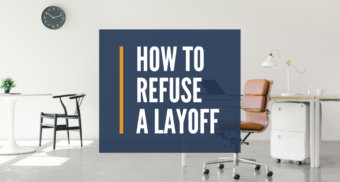COVID
COVID-19: Workplace refusals and a declining hospitality sector

While many businesses are opening or set to open as the pandemic continues, some have closed their doors permanently. Many employers and employees are voicing their concerns over their rights and obligations as a result. A Hamilton employment lawyer at Samfiru Tumarkin LLP discusses these complaints and more with Ted Michaels on Global News Radio 900 CHML in Hamilton.
What They Discussed:
- Has there been an increase in the past few weeks in employment rights concerns as we move into another stage of the pandemic? The issues being raised have changed slightly to the outset of the pandemic, now there are more concerns with workplace safety.
- How has the pandemic changed the practice of law and helping clients? Everything is conducted remotely, there is no physical interaction with anyone involved.
- Many employers have stated their employees are refusing to come back to work after a temporary layoff. Is this surprising? Employers will need to discover why their employees are choosing to stay home.
- From an employer’s perspective, if an employee declines to return to work, what are their options? Determine why an employee refuses to return; is this refusal legitimate or not?
- Should employees ask for new contracts as work environments and expectations have changed due to COVID-19? Employees do not have to sign a new contract as they return to work.
- Should full-time workers expect anything to change in their employment agreements? If the terms of your employment are the same after returning (i.e. wages, benefits, etc.) there is no need to sign a new agreement.
- The restaurant and bar sector expect a dramatic decline due to COVID-19. What are the implications for employers and employees in the hospitality sector? An increase in unemployment unfortunately particularly for servers with the possibility of no severance if a restaurant must close its doors.
- If a server does not wish to return to their job as they prefer CERB, what should an employer do? An employer can treat this refusal as an abandonment of their job. Employees also have to bear in mind what is required in order to qualify for CERB.




